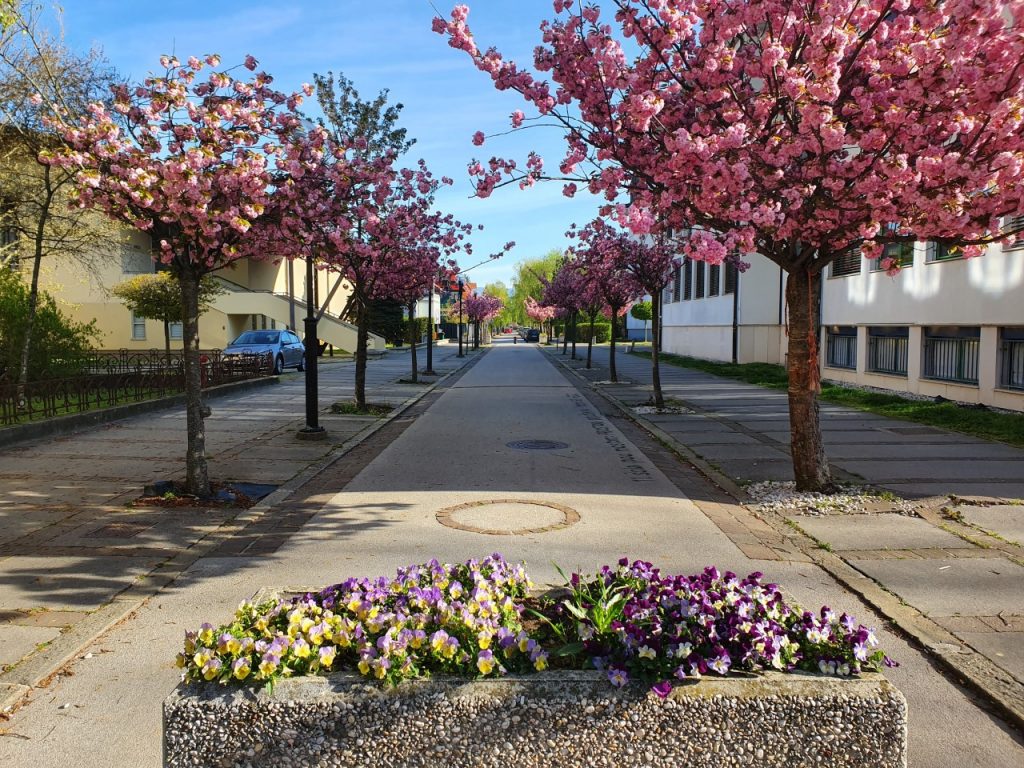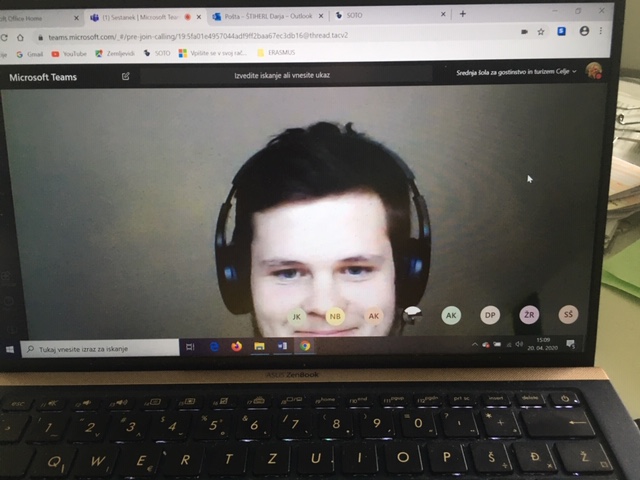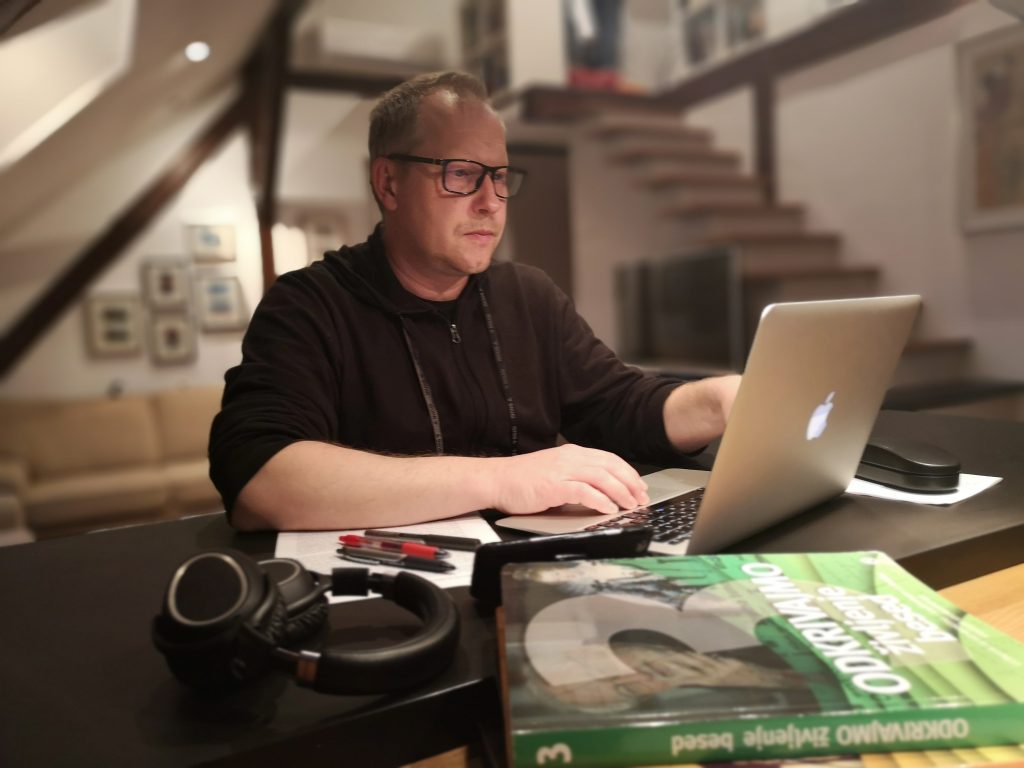First days of the pandemic were espeacially challenging for Slovenia due to the resignation of their Primer Minister in late January and the consequent formation of new government. First case was confirmed one day after Janez Jansa was elected Prime Minister. In this article Natali Borinc and Darja Štiherl from Gradia’s partner college Srednja šola za gostinstvo in turizem Celje are reporting their experiences during the pandemic.

The tourism college in Celje actually switched to distance learning already in the first week of the »stay-at-home« quarantine which mainly included setting up the MS Teams system for communication with students and staff, getting acquainted with the tools, creating relevant groups (classes, teachers’ groups according to the subjects etc.) The students were then given instructions and support how to deal within the Teams platform. “The biggest problem at the beginning was to ensure that all students have a computer and internet access. This was partly solved by our school which provided 7 students with laptops and partly by donations of the mobile wi-fi routers” says Natali Borinc.
“Although ICT has been more and more integrated in our teaching and learning process in the past years we suddenly realized that creating a virtual reality was the only way for teachers and students to move forward and continue the work. The Corona crisis definitely made us all develop and upgrade our digital competences so to say overnight. And it worked well!” adds Darja Stiherl. After two weeks it has become quite routine to hold online lessons or individual consultations, to participate in weekly conferences and meetings, to create online tests, check students’ assignments uploaded in the Teams folders etc. “Will this experience bring any permanent changes in the way of our school work and life in the future? Yes, it definitely will. Namely, the feedback of all involved based on the analysis of questionnaires and personal interviews is very positive.” The college has been creating a database of numerous results of the distance learning activities like: recorded online lessons, students’ seminar and project works, video presentations etc. This database will represent a new resource for teaching and learning not only during the educational process at the school but also for the students on mobility periods, students who are often absent due to chronic health problems, for promotional activities etc.

“As regards our transnational activities the Corona situation required immediate actions because we had two groups of students on mobility in Ireland and Finland when the EU countries started to close their borders.” With a strong support of their partners, including Gradia, in both countries they managed to bring all students home safely. A short-term impact has been the need to extend the duration of the current mobility project to make up for the activities which ended prematurely or have not been implemented at all. “It is difficult to predict the mid or long term impact, but we think that the selection of safe destinations and reliable partners will be one of the most important issues in planning the mobilities in the future,” Natali ponders.

So what kind of an impact has the situation had on a more personal level? “As a project coordinator I am using distance learning tools to communicate with the future mobility participants instead of personal meetings and workshops which I usually implement within the preparation phase for mobility,” says Natali. She holds online group meetings and arranges individual consultations. And although her project work tasks were even previously mostly done by using ICT she has acquired some valuable new skills which will improve her future work with partners and participants before, during and after the mobility period.
“I’ve often heard and also used the saying “It’s never too late to learn”. Yes, it’s true and I have experienced this just a few months before my retirement,” Darja remarks. It has been her most intensive learning experience related to development of digital competences ever, a combination of self-study and support of her colleagues in the form of exchanging tips, advice, instructions and examples of good practice. “It was challenging, sometimes exhausting, sometimes fun-but the results are rewarding. And finally, I think that this experience improved the image and the importance of the teachers’ role in the education process.”
Natali and Darja would like to conclude with this: “At the end we would like to share our optimism for the future cooperation with Gradia and express our gratitude for the excellent support of their project team in organizing the emergency return journey of our students just before the airports and borders closed.”
Students from the tourism college in Celje are frequent participants in the tourism summer and winter schools arranged by the tourism programme in Gradia Jyväskylä. You can watch a video of one of the winter schools on Gradia’s YouTube channel: https://tinyurl.com/tourismwinterschool